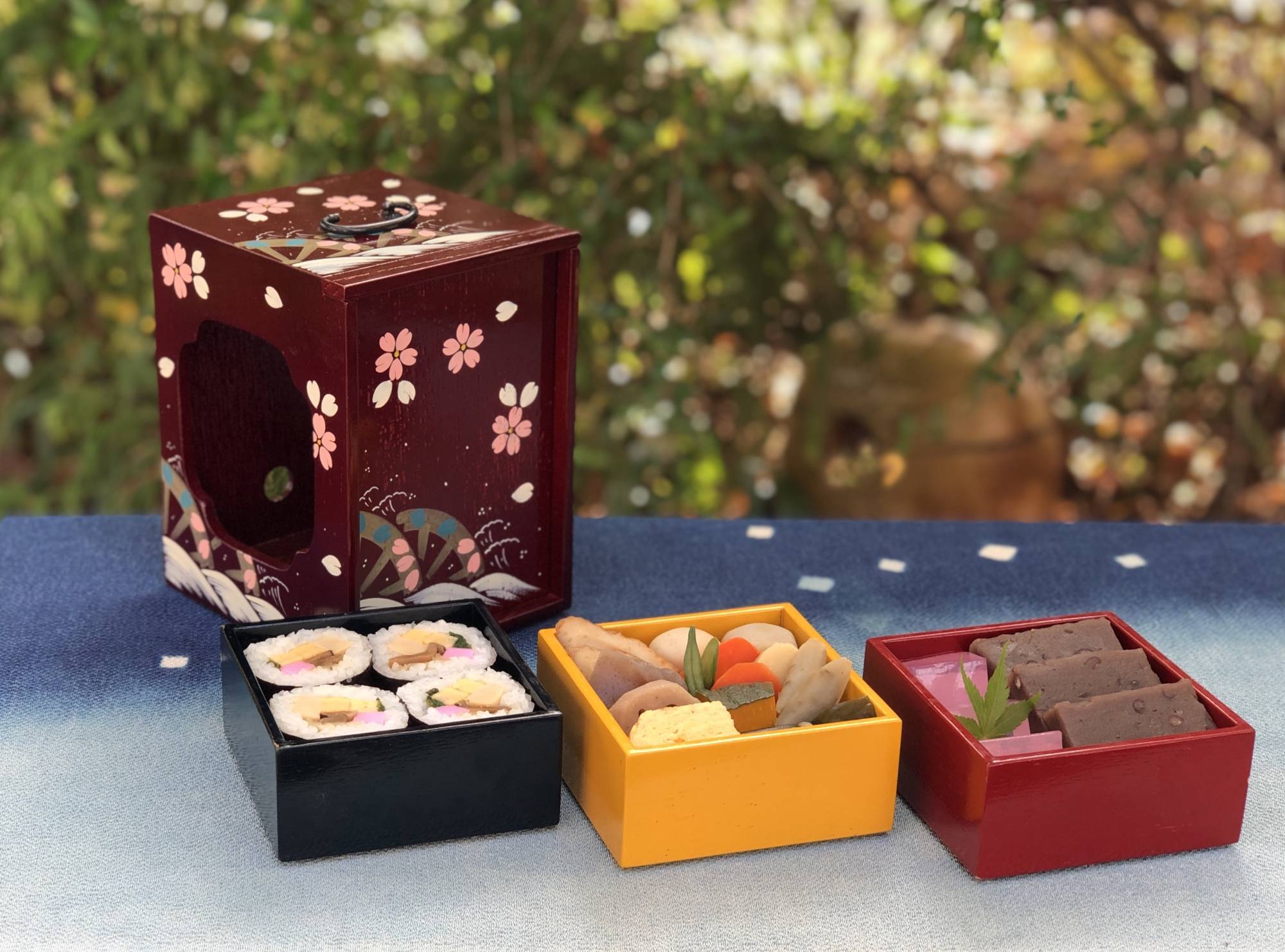Three-tiered lacquered wooden lunch boxes, known as yusanbako, were once a traditional part of childhood culture in Tokushima Prefecture — children often carried the colorful containers when they went on picnics. Developed from larger boxes designed to carry lunch for an entire family, the child-sized version is thought to have appeared during the late Edo Period (1603-1868). Yusanbako specifically decorated with designs to appeal to children then became widespread in the Meiji Era (1868-1912).
Following World War II, however, demand for yusanbako fell, as did the number of craftspeople with the necessary skills to make them, as people shifted to more urban lifestyles. By the 1960s few children used the boxes, and yusanbako was on its way toward becoming a charming footnote in local history.
Fortunately, due to the collaborative efforts of an unlikely trio, Tokushima’s yusanbako culture has made a comeback in recent years.



